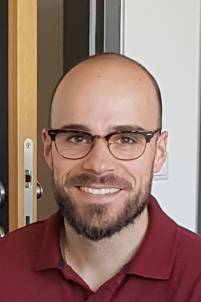The Team
My name is Tim Rose. I'm a PhD candidate in the LipiTUM group. I received my Bachelor's degree in Quantitative Biology in Düsseldorf, where I did my thesis on equilibrium behavior of the Pentose Phosphate Pathway. After that, I worked on a master's project in modeling the radiation response of cancer cells to obtain a M.Sc. degree in Biophysics. I am working on the creation and analysis of lipid metabolic networks, to enable a systems biological view on the lipidome and integration with other omics disciplines. Furthermore, I am developing methods to stratify patients based on molecular data. For that I am working in close collaborations with clinical and experimental researchers.
My name is Nikolai Köhler. I started my PhD in the LipiTUM group in November 2020, after completing a Master's degree in Molecular Biotechnology at TUM. My Master's Thesis, which I also conducted in the LipiTUM group, was focussing on the computational analysis of multi-organ lipidome changes in response to Hepatocellular Carcinoma and Cachexia. During my studies I also gained practical experience in mass spectrometry through an internship in the lab of Ute Roessner at the University of Melbourne. In my time as a PhD student I will be working on the development of data analysis methods for lipidomic and metabolomic data and their integration with other types of omics data in the context of microbiota. By applying these methods in collaborations they can hopefully contribute to the mechanistic understanding of various diseases and thereby help improve diagnostic procedures and treatments.
My name is Vivian Würf and I am a PhD student in the LipiTUM group. I received my Master’s degree in Nutrition and Biomedicine from the Technical University of Munich with a thesis on the effects of the cytokine GDF15 on energy balance and chronic inflammatory response. As a PhD student I am working on the LipiDetective pilot project where I am developing a deep learning model for the identification and prediction of characteristic mass spectrometry fragmentation patterns of lipids for the LipiTUM platform. Additionally, I will also be working on implementing a knowledge graph that connects metabolites with diets and diseases. The overarching objective in this context is to establish a connection between metabolomics and lipidomics data and the human diseasome, which I hope can contribute to a deeper and holistic understanding of human diseases.
B.Sc. Students
Konstantinos Mitsakis
M.Sc. Students
Florian Molnar


